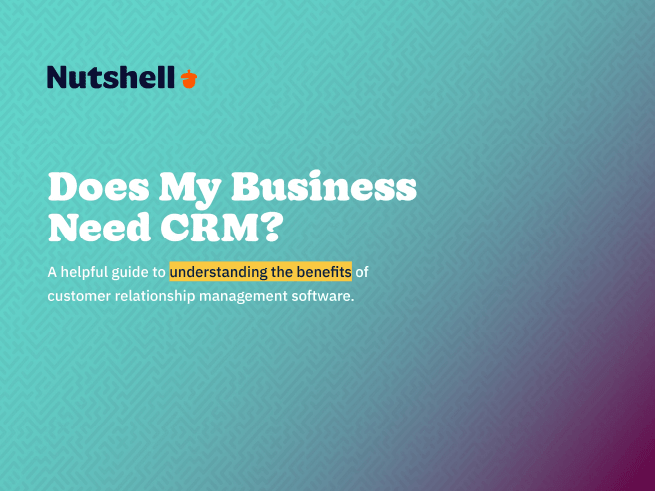
A sales pipeline is a well-defined set of tasks within stages that your sales team can follow so that they know what action to take depending on where your lead is in the buyer journey.
As a financial services company, it’s important to have a well-defined pipeline to track and manage leads effectively, hit your sales targets faster, and boost the overall productivity of your sales team.
In this article, you’ll learn the five best practices for managing a sales pipeline in your financial services business.
People are careful and very sensitive when it comes to who they trust with their money. It’s important for financial services professionals to build trust with their prospects.
That’s why having an actionable sales pipeline with clear touchpoints and tasks allows you to stay consistent with crucial relationship-building tasks. A sales pipeline helps you to stay in tune with your leads, knowing where they are in the buyer’s journey at all times.
Using this knowledge, you can effectively plan and execute your next sales action without the risk of overwhelming the client.

Every lead and client has a unique financial situation. As a financial services company, you want to make sure you tailor your approach to each client with sensitivity to their needs.
A well-managed financial services sales pipeline allows you to meet the client where they are, knowing exactly what to offer and what to say to nurture the relationship and get them further down the sales funnel.
Other benefits of managing a well-defined sales pipeline for financial services companies include:

Managing a sales pipeline that consistently drives results for your financial services company is a daunting task. But it can be made easier with these four best practices:
Let’s look at these best practices in depth.
The first step to managing your financial services sales pipeline is to determine the stages of your sales process.
You may already be following an intuitive sales process, but a visual representation can help you see what works and where you could improve. Plus, having everything written down eliminates the guesswork out of the process.
Generally speaking, the sales pipeline for a financial services company would include:
Your process may differ slightly from the list above, but these are the general steps your sales team and lead go through on the journey to closing.
The purpose of defining your sales process visually is to create a standardized sales process to map to your pipeline. This ensures that you create consistent workflows tailored to your financial services and allows your sales team to be on the same page with a standardized approach.
DOWNLOAD
If you’re unsure, our list of 101 Task Ideas for Any Sales Process will help you get started.

When you have defined stages for your sales pipeline, it is easier to monitor your performance, which is recommended you do on a regular basis.
Having the numbers in front of you can help you get a realistic view of the effectiveness of your sales pipeline. You can use the insights to update your process accordingly, create a faster lead-to-close cycle, or create actions that encourage customer retention.
We recommend scheduling your pipeline audits weekly, monthly, and quarterly to ensure you optimize your process consistently to meet your sales goals.
As a financial services company, you understand the value of your time and resources. Are you allocating your time wisely to your leads?
A regular lead list cleanup is key to managing a well-running sales pipeline.
Use lead scoring to identify the leads that are more likely to close (i.e., your “hot leads” or high-quality leads). You can then prioritize closing your high-quality leads and cleaning your consistently low-scoring leads.
The latter activity can be painful for any business. We often believe that with just one “push,” we can turn anyone into a client.
But cleaning your list of low score leads can help your team to focus on getting the leads that are more likely to convert into customers, earning more revenue for your business.
The right customer relationship management (CRM) software can help you create the perfect sales pipeline that fits your business goals and your ideal customer. Plus, the previous best practices we mentioned? They can be simplified or supercharged with a great CRM.
Nutshell, for example, lets you customize your sales pipelines to meet your specific needs. You can automate non-selling tasks, apply lead scoring based on your criteria, and assign your leads to appropriate stages based on their actions.
Create a custom pipeline from scratch or use one of Nutshell’s pipeline starter packs to accelerate pipeline creation so you can focus on selling. You can also use Nutshell’s advanced reporting capabilities to analyze your pipeline performance, track your team’s productivity, and forecast future sales.
Plus, native marketing features such as email marketing and a landing page builder make Nutshell an excellent CRM for financial services companies that want to empower their sales and marketing teams to accelerate business growth.
In the highly regulated financial services industry, compliance isn’t just a checkbox—it’s fundamental. Nutshell helps by providing a centralized, secure platform to meticulously log all client interactions, communications, and document exchanges. This creates an unalterable audit trail, crucial for demonstrating adherence to regulations like FINRA, SEC, or local financial guidelines. You can customize fields to track specific disclosures, consent forms, or regulatory statuses, ensuring no detail is missed. By standardizing your sales process within Nutshell, you build compliance directly into your workflow, reducing risk and providing peace of mind during audits.
Beyond basic win/loss rates, financial services firms should leverage Nutshell to track metrics that offer deeper insights into their pipeline health and future revenue. Key metrics include:
Nutshell’s customizable dashboards and reporting tools allow you to visualize these metrics, identify bottlenecks, and make data-driven adjustments to your sales strategy and forecasting.
Building trust is paramount in financial services. Nutshell empowers advisors to cultivate stronger relationships by providing a 360-degree view of every client and prospect. This includes:
By centralizing client intelligence, Nutshell helps you move beyond transactional interactions to become a trusted advisor.
Shortening the sales cycle in financial services often involves optimizing efficiency without sacrificing the personalized touch. Nutshell facilitates this through:
By intelligently automating routine tasks, you free up valuable time for meaningful, high-impact client interactions that accelerate decision-making.
Financial advisors often spend significant time on administrative tasks that could be automated. Nutshell’s automation capabilities are designed to give you back that time, allowing you to focus on what matters most: your clients. This includes:
By offloading these repetitive tasks to Nutshell, advisors can dedicate more energy to client meetings, strategic planning, and building those crucial relationships.
Nutshell CRM is an all-in-one CRM solution to help your financial services company close more sales.
Sign up today for your 14-day free trial of Nutshell and our white-glove support services, such as contact importing and live demos.
Give our powerful, easy-to-use CRM a try for free for 14 days! Or join a live demo to see Nutshell at work!


Join 30,000+ other sales and marketing professionals. Subscribe to our Sell to Win newsletter!